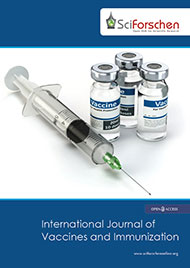
Professor of Immunology & Haematology
- (61) 7 4923 2008 (61) 7 4930 9209
School of Medical & Applied Sciences
Central Queensland University, Rockhampton
Australia
Education
Biography
Andrew Taylor-Robinson received a BSc in microbiology (immunology major) from University College London and a PhD in parasite immunology from the University of Glasgow for work on immunity to malaria. Postdoctoral research at the Universities of Edinburgh and Glasgow, the Medical Research Council Laboratories, Fajara, The Gambia, and the Max Planck Institute for Immunobiology, Freiburg, Germany, on human and rodent malarias further developed interest in regulation of immunity to infection. He was awarded a Wellcome Trust Career Development Research Fellowship at the University of Leeds and subsequently appointed to the permanent academic staff. He is a Fellow of the Higher Education Academy, Royal College of Pathologists of the UK and of Australasia, Royal Society of Biology, Institute of Biomedical Science, the Australasian College of Tropical Medicine and the Australian Society for Microbiology. He joined CQUniversity in 2012 and spent a secondment as a Professorial Research Fellow with the Health Collaborative Research Network. He is Professor of Immunology & Haematology and currently Deputy Dean (Research) in the School of Medical & Applied Sciences.
Andrew has over 25 years’ research experience of infectious disease immunology, with focus on malaria and other mosquito-borne diseases. His interests include understanding regulation of the immune response, effector mechanisms of protective immunity and their potentiation for vaccine design. Aspects of this work are continuing in collaboration with former colleagues at Leeds, where he retains a visiting appointment. Andrew’s previous studies of cellular immunity in both experimental models and humans make him well suited to lead the work of the Infectious Diseases Research Cluster on the impact of pathogens on human health and wellbeing in rural Queensland. This is harnessing the power of place to collaborate on a number of diverse projects of regional relevance, including: bacterial infections of the upper respiratory tract, contributing to otitis media; dengue fever immunoepidemiology; and transmission cycles of arboviruses. These involve fruitful collaborations with Swinburne University of Technology, Mater Misericordiae Hospital Rockhampton and Queensland University of Technology. A further project on bringing enhanced cryobiology technologies to bovine embryology involves Monash University and an industrial partnership with Australian Reproductive Technologies.
Research Interest
Professional Activities:
Publications

